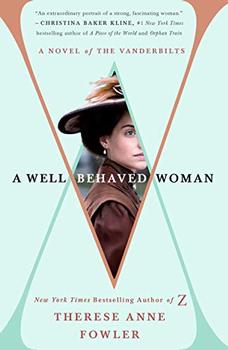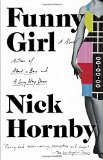Summary | Excerpt | Reading Guide | Reviews | Beyond the book | Read-Alikes | Genres & Themes | Author Bio

A Novel
by Phillip MarguliesResonant of Margaret Mitchell's Scarlett O'Hara and Edith Wharton's Undine Spragg, Phillip Margulies's Belle Cora is a fascinating, scene-stealing protagonist, and his eponymous debut novel, a sweeping historical epic. Opening in 1820s New York, the story spans decades and states, as the narrative follows Belle's maturation from naive daughter of religious zealots to sought-after madam of San Francisco's foremost brothel.
Born into a family of austere New England Puritans, Belle learns early the value of self-reliance. When her beloved mother dies of tuberculosis, she and her brother Louis are removed to upstate New York to live with hardscrabble, devoutly religious relatives. The austerity of their earlier childhood is replaced by borderline abuse, as Belle and Louis's aunt and uncle try to transform them from privileged city dwellers to hardworking, devout farm people. The efforts backfire, and the siblings chart rebellious paths to maintain their sense of selves. For Belle, this path includes Jeptha, the intelligent son of a drunkard neighbor, who falls in love with her at first glance. Unfortunately, Agnes, Belle's cousin and daughter of Belle's despised aunt and uncle, has already claimed Jeptha for her own. Agnes' desire for control of Jeptha and her absolute hatred of Belle pit the girls as enemies, a rivalry that will have dire consequences for Belle.
Though Belle's exposure to these devout, sedulous relatives should have instilled in her the value of a moral life, it has the opposite effect. She learns duplicity, manipulation and self-reliance, rather than the importance of family, community, and personal virtue. However, Belle's childhood is not completely bereft of happiness. The ties she has with her brother Louis are long-lasting, and it is the relationship with Jeptha that is the most formative of her life. In fact, her love for Jeptha and her desire to be independent are the two forces that most shape her adulthood. Despite Belle's best efforts, however, these forces are rarely in communion.
Told from Belle's perspective as an older woman, this novel, over 500 pages long, masquerades as her memoir. Belle is captivating, not only because of her unique adventures, but because of her opinions of them. Her honest appraisal of her actions and circumstances reveals a keen, practical mind. Unfortunately, her savviness is misplaced in a world requiring women to be modest, humble helpmates. In contemporary times, Belle would have run a company. In the mid-19th century, she had fewer options. Though prostitution is an unsavory choice, it provides access to the type of life Belle desperately seeks, one of independence and freedom. Ultimately, and in an ironic turn that is not lost on Belle, prostitution provides her more self-respect than the life she spent with her devout relatives.
Complementing Belle's search for independence are the compelling historical details of mid-19th century America. Margulies' depiction of New York slums and San Francisco's gold rush excitement are transportive. Though Belle's journey from Puritan New England to wealthy San Francisco is specific to her, the general path she charts of East coast austerity to Western boomtime reads like a metaphor for American expansion. As Belle leaves New England behind to achieve wealth and freedom in San Francisco, her story mirrors that of many other Americans who have sought better lives by moving West. Indeed, Belle's rags-to-riches story, added to her migration West, echoes the quests of other great American novels, in which characters move location or improve their financial standing to find better lives. In a general, but significantly related way, Gatsby (from F. Scott Fitzgerald's The Great Gatsby) and Huck (from Mark Twain's Huck Finn) made the same trek.
Belle Cora is a grand novel in every sense of the word. It will appeal to historical fiction and literary fiction fans alike.
![]() This review was originally published in The BookBrowse Review in January 2014, and has been updated for the
October 2014 edition.
Click here to go to this issue.
This review was originally published in The BookBrowse Review in January 2014, and has been updated for the
October 2014 edition.
Click here to go to this issue.

If you liked Belle Cora, try these:

by Therese Anne Fowler
Published 2019
The riveting novel of iron-willed Alva Vanderbilt and her illustrious family as they rule Gilded-Age New York, from the New York Times bestselling author of Z: A Novel of Zelda Fitzgerald.

by Nick Hornby
Published 2016
Insightful and humorous, Nick Hornby's latest does what he does best: endears us to a cast of characters who are funny if flawed, and forces us to examine ourselves in the process.
Your guide toexceptional books
BookBrowse seeks out and recommends the best in contemporary fiction and nonfiction—books that not only engage and entertain but also deepen our understanding of ourselves and the world around us.